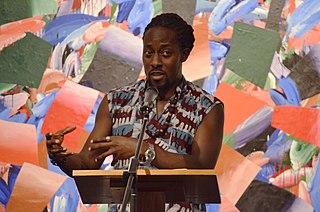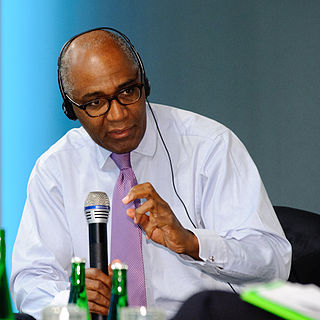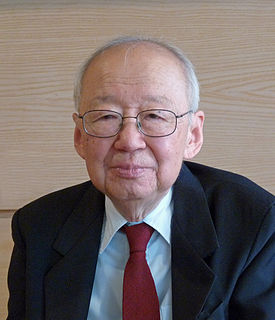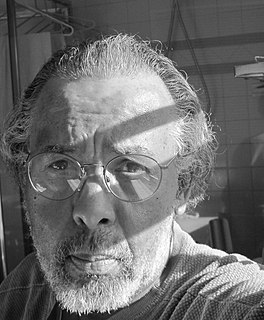Top 941 Socially Quotes & Sayings - Page 15
Explore popular Socially quotes.
Last updated on November 24, 2024.
If you look at the Oscars and look at the Best Foreign Language series, you see that the films are coming from everywhere - from Quebec, Israel, Poland, and Belgium. It's not the usual French, German, etc. This category is opening up to socially engaged and political films. I think we're going to see a cross over to the main categories also. It's part of this global environment now and I'm grateful that the Academy is having this window on world cinema.
I was raised to think about philosophy and religious thought and the soul and the spirit of humankind in a different way, also really socially progressive teachings of the Baha'i faith, the equality of men and women, the elimination of racial prejudice, the equality of science and religion, so it was a big cauldron of big ideas in my household. And we were weird and unhappy family, but nonetheless that was a really positive thing that came out of it.
Instead of working for white man and helping him hold up a government that continues to suppress us socially and, and exploit us economically and oppress us politically, let us go and enter our own territory and use our own talents to uplift ourselves by our own bootstraps. And then he will recognize us for what we are.
The first purpose of comedy is to make people laugh. Anything deeper is a bonus. Some comedians want to make people laugh and make them think about socially relevant issues, but comedy, by the very nature of the word, is to make people laugh. If people aren't laughing, it's not comedy. It's as simple as that.
The race thing is sort of a misnomer. It's just the human race, right? That's it. The rest of it, and racism, is socially constructed. Nobody is born racist, no one. What happens is other things that are usually based on power, money, feeling good about yourself, or bad about yourself, those things play into hating other people for whatever reason.
I am between the Tories and the Lib Dems. I am fiscally conservative. I'm for strong foreign policy, but socially very liberal. I am not religious. That makes me feel uncomfortable with American Republicans. I don't feel at home anywhere, really. Labour under Tony Blair was not something I would associate myself with, but I didn't have a big problem with it. I have to make a choice between fiscal and the role of the state and social freedom.
I'm interested in representation that falls outside of what would be socially appropriate, or acceptable, or beautiful. The world is going through a very fundamentalist moment. You have right-wing politics and misogyny and religion employed together everywhere - here in the US, with issues like abortion. Religion is a very fraught and complicated topic, but at the same time, like all grand historical narratives, there is a potential for challenging, or rethinking the kinds of subjectivities that these meta-narratives produce.
One of the biggest problems I found with Irish politics and the economic thing was after the war, after World War II, most of the European countries started to develop economically and socially, but whatever way the Catholic church they took a grip and they almost governed the country. I mean, we were almost like a dictatorship. There is good and bad, but we experienced an awful lot of bad, especially from the institutions that taught children the Christian brothers, etc.
The specific goals we set for ourselves are almost always subsidiary to our long range intentions. A good parent, a good neighbour, a good citizen, is not good because his specific goals are acceptable, but because his successive goals are ordered to a dependable and socially desirable set of values. (1947)
One of my favorite sketches, and a popular comedy formula, is to put someone with a mental handicap in some kind of unlikely situation. For example: The retarded gynecologist, the retarded Jesus, the retarded Osama Bin Laden. It works. It's funny. Inappropriate? I dunno. I feel like I'm a pretty good judge of what crosses the line of good taste being that I am retarded. Socially perhaps, but severly retarded.
Despite the fact that an Indonesian island chicken has probably had a much more natural life than one raised on a battery farm in England, people who wouldn't think twice about buying something oven-ready become much more upset about a chicken that they've been on a boat with, so there is probably buried in the Western psyche a deep taboo about eating anything you've been introduced to socially.
A performer may be taken in by his own act, convinced at the moment that the impression of reality which he fosters is the one and only reality. In such cases we have a sense in which the performer comes to be his own audience; he comes to be performer and observer of the same show. Presumably he introcepts or incorporates the standards he attempts to maintain in the presence of others so that even in their absence his conscience requires him to act in a socially proper way.
One of my jobs was at a start-up ad agency. They were trying to do things differently, work with socially conscious clients, and to really be a more creative take on advertising than the industry itself. But I noticed that what the guys at the office were circulating for inspiration still came from within the ad industry. I thought that was really counterintuitive - to only borrow inspiration from within your own industry.
I don't think I'm more politically-based as much as socially-based. My grandmother died on February 29th, and she kept all of my magazine and newspaper scraps, every interview. I've been in the newspapers since I was about 15 - not for rapping, but for real substantive stuff I was doing in the community, organizing around gang violence in the schools. So I had already made my grandma proud before I was on TV. I've always been who I am.
Part of what we want to do with the Heroic Imagination Project is to get kids to think about what it means to be a hero. The most basic concept of a hero is socially constructed: It differs from culture to culture and changes over time. Think of Christopher Columbus. Until recently, he was a hero. Now he's a genocidal murderer! If he were alive today, he'd say, "What happened? I used to be a hero, and now people are throwing tomatoes at me!
The common man, finding himself in a world so excellent, technically and socially, believes it has been produced by nature, and never thinks of the personal efforts of highly endowed individuals which the creation of this new world presupposed. Still less will he admit the notion that all these facilities still require the support of certain difficult human virtues, the least failure of which would cause the rapid disappearance of the whole magnificent edifice.
Ideas about the scope and meaning of freedom of speech do expand and contract with the times. At the moment, we live in an age that is very permissive, both legally and socially, on a wide range of subjects from Karl Marx to kinky sex. This has not always been the case. Things that even children freely see and read and hear today -- writings, pictures, words -- would have been banned as just plain obscene, even for adults, as recently as the middle of the twentieth century.
I think we left out one of the really important elements contributing to the dynamism of society, and that is the right to privacy. I mean something more than the right to shave in private. I mean the right to join what I want to join, to do what I want to do, or not to do what I might do without giving anyone a reason, either in advance or afterwards. That does not mean that I am seeking for irresponsibility socially.
The issue of who gets to define the future, own the nation's wealth, shape the parameters of the social state, control the globe's resources, and create a formative culture for producing engaged and socially responsible citizens is no longer a rhetorical issue, but offers up new categories for defining how matters of representations, education, economic justice, and politics are to be defined and fought over. At stake here is the need for both a language of critique and possibility.
I know my grandfather drank occasionally socially, what we call "taking a sip." And my father never touched the bottle. He condemned my grandfather for doing that, and his punishment to his father was when my grandfather came to visit him from Georgia, he would not allow my grandfather to preach in his church.Even though my classmates very often drank alcohol in my presence and they would try and get me to join in, I felt, no, I didn't need that.
There's so many ways in which Canada and America are inextricably connected politically, economically, socially. There's no stepping away. But at the same time, we don't have a say. Canada is a different country. Sometimes I think of it as Finland in the Soviet era. We're totally free, but we're totally free to agree, basically. If we disagree too heartily or over too sensitive an issue, then we pay a price for that.
That was always what I felt was the beauty of Rock 'n' Roll, it was entertainment and showbiz yet it had the idea of the voice of the people, it had an essence to it which was socially motivated. Not that I want to change to world, you know? But it was sort of relevant to real life, it involved the real essence of poetry or the real essence of fine art. But it was also entertainment. That was the real vitality.
The place of electronic music, culturally and socially, is today completely different - it is now everywhere, and it has been totally accepted. Consequently, there is now a younger generation that is more focused on making great electronic music, good parties, and having fun, where there is not any more so much need for cultural and ideological statements in electronic music itself.
I like aristocracy. I like the beauty of aristocracy. I like the hierarchical feeling.You could claim that it's due to my military experience. But it came before that. I love their freedom of behavior. They're not constrained by penal attitudes, puritanical attitudes about behavior, both socially and morally. They have a freedom that I admire. An unquestioned freedom.
I’ve often wished that I had some suave and socially acceptable hobby that I could fall back on in times like this. You know, play the violin (or was it the viola) like Sherlock Holmes, or maybe twiddle away on the pipe organ like the Disney version of Captain Nemo. But I don’t. I’m sort of the arcane equivalent of a classic computer geek. I do magic, in one form or another, and that’s pretty much it. I really need to get a life, one of these days
Technology isn't simply addictive - it's addictive because it's a servant to business incentives. There are huge departments in these companies that are devoted to this and staffed by incredibly talented people who have skills that could be put to socially beneficial projects but who are now trying to find out how to make you click and how to maximize your time on a certain site, or encourage teenagers to "friend" more products and constantly engage with them.
I can't believe that people really prefer to go to the concert hall under intellectually trying, socially trying, physically trying conditions, unable to repeat something they have missed, when they can sit at home under the most comfortable and stimulating circumstances and hear it as they want to hear it. I can't imagine what would happen to literature today if one were obliged to congregate in an unpleasant hall and read novels projected on a screen.
An up-close portrait of middle-class Nigeria exploring the boundaries of morals and public decorum. Pitched between humor and despair, with stripped-down, evocative prose, A Bit of Difference bristles with penknife-sharp dialogue, but its truths are more subtle, hiding in the unspoken. Ultimately, A Bit of Difference explores – with a hint of mischief–the problem of how to look like you have no problems when you have abundant problems–the universal problem of the socially-motivated classes.
The big characters who occupy science, especially modern science, are all "off" in fundamental ways. I don't think that genius goes hand in hand with being socially inept or being a sociopath or being a misanthrope, but I do think that it is a mind that can think so differently - so beyond how one is supposed to think. I wanted to pay tribute to that mind.
If you really think everything in your life, everything that you benefit from comes from socially aware, like-minded, good-hearted people, then you're out of your mind. If you want only those people to have good jobs, we would have to learn how to adjust very quickly without those people. Maybe I'm cynical, but I truly believe that.
Toward the end of the campaign, we interviewed some voters in Raleigh, N.C., which is a generally Democratic city, and I'm thinking of a young couple. They had two kids. They described themselves as Christian. They oppose gay marriage. And they were saying that even though they didn't like Donald Trump, they were thinking of voting for him. And one of the reasons was they felt that they were - their very views were making them socially unacceptable. They were feeling a little alienated from the world.
It is a fact that, in the West, we live in a capitalist society, but that does not mean that we cannot be guided by the idea of a social conscience in our work. Yes, fashion design requires consumers to consume, but we can do our bit for society by running our companies in a socially responsible way, and by creating products that promote respect for social and environmental issues. There is also the possibility for power and influence to be a force for change.
We feel properly embarrassed when we are caught doing something that makes us look inept, knuckleheaded, or inappropriate. Maybe the difference is this: we feel embarrassed because we look bad, and we feel shame because we think we are bad. When we are embarrassed, we feel socially foolish. When we are shamed, we feel morally unworthy.
Most liberal-minded folk would like to think that since they are not hostile to people of a different race, racism is a disease of the uneducated, unenlightened and socially backward - football hooligans, British National Party supporters, policemen. You could call this the Bad Guy Theory. But the Bad Guy Theory does not explain why Indian-heritage children do nearly twice as well as Pakistani-heritage children at GCSE.
As an actor, you're just taking temperature. I am anyway, all the time, and responding appropriately. I was again cast very last-minute for Rushmore and met Wes Anderson, this quite physically and socially awkward man who didn't really talk to me much, a precocious and intelligent young boy. And Bill Murray. And we were sort of left in this bizarre hotel together and taken to strange locations around Houston. That was quite an isolating experience.
But complex animals had obtained their adaptive flexibility at some cost--they had traded one dependency for another. It was no longer necessary to change their bodies to adapt, because now their adaptation was behavior, socially determined. That behavior required learning. In a sense, among higher animals adaptive fitness was no longer transmitted to the next generation by DNA at all. It was now carried by teaching.
I feel a reassuring oneness with other people when I find that even my most intimate, anguished, socially inadmissible emotions and desires are known to others.... Kindred souls—indeed, my selves otherwise costumed—turn up in books in the most unexpected places. Discovering them is one of the great rewards of a liberal education. If I quote liberally, it is not to show off book learning, which at my stage of life can only invite ridicule, but rather to bathe in this kinship of strangers.
You may ask what kind of a republic I dream of. Let me reply: I dream of a republic independent, free, and democratic, of a republic economically prosperous and yet socially just; in short, of a humane republic which serves the individual and which therefore holds the hope that the individual will serve it in turn. Of a republic of well-rounded people, because without such it is impossible to solve any of our problems, human, economic, ecological, social, or political.
Debating the concept of race does not mean that I in any way regard this as a quarrel between neighbors over where they come from. I have perhaps said enough when I said the alternative to assimilation is that immigrant groups form their own state or go away for lack of acceptance. Why should it be less serious if quarrels and dissensions are socially related? After all, the quarrels and dissensions between Russia and America are also not racial. And yet they seem to me extremely dangerous.
For most people, self-awareness and self-pity blossom simultaneously in early adolescence. It's about that time that we start viewing the world as something other than a whoop-de-doo playground, we start to experience personally how threatening it can be, how cruel and unjust. At the very moment when we become, for the first time, both introspective and socially conscientious, we receive the bad news that the world, by and large, doesn't give a rat's ass.
I think that all art is socially conscious. There is no alternative. Whatever we produce contains a political and social statement. There's no way to avoid that, unless it is pure decoration. But even pure decoration has also some value because you can read pure decoration as a way to ignore the reality that is around us, saying, "Well, I'm not interested. I just like to paint this wall blue.
J.C. [Chandor] was the kind of energy we were looking for, so we decided to get behind it with all of our effort. That was the beginning of our relationship with first-time feature directors, and that's when it became really important to us, watching them thrive and grow in a creative environment in which you can do that was really key. Also his work checked all the boxes, because it was socially relevant and intellectually driven, and creatively exciting.
As long as the "woman's work" that some men do is socially devalued, as long as it is defined as woman's work, as long as it's tacked onto a "regular" work day, men who share it are likely to develop the same jagged mouth and frazzled hair as the coffee-mug mom. The image of the new man is like the image of the supermom: it obscures the strain.
Socially and politically, we seem to be living in dire times, worse times than in the past. But there were far worse horrors in our past. The writer's role is to be a truth sayer. I sincerely believe that each society, each country lives by a particular fantasy vision, a fantasy vision of itself. The truth of how they live is hardly ever faced.
It is generally admitted that the cultural values (humanization) and the existing institutions and policies of society are rarely,if ever, in harmony. This opinion has found expression in the distinction between culture and civilization, according to which "culture" refers to some higher dimension of human autonomy and fulfillment, while "civilization" designates the realm of necessity, of socially necessary work and behavior, where man is not really himself and in his own element but is subject to heteronomy, to external conditions and needs.
I am far more of a loner than people would imagine. But I am the most gregarious and socially interactive loner you ever met. The thing is, I am fascinated by people's stories and I'm very talkative and can't ever say no to anything or anyone, so I tend to over-socialize, to give away too much of my time to the many people I adore.
If you believe that there’s a heaven and hell and people could be going to hell—or not getting eternal life or whatever—and you think that, well, it’s not really worth telling them this because it would make it socially awkward. . . . How much do you have to hate somebody to not proselytize? How much do you have to hate somebody to believe that everlasting life is possible and not tell them that?
Feminism means to me aquality, actually. Women having equal rights to every thing the male population have in all aspects. Whether that's socially, or within the household or in the workplace. I don't find it a difficult word but it does have a lot of baggage. There's still a lot of work to be done in various parts of the world and society. If you look at where a woman's place was a couple of generations ago, there's been a huge development and progression. And it's an important queston to keep bringing up.
Russia can fall apart. It's not because of the oil prices ... It's because what sticks a country together is a common interest of people. It has to be economically and socially profitable - beneficial - for people to be together. They should understand how they benefit from a large country. And if they start to feel like a large country is a source of problem, then the country collapses as the Soviet Union collapsed.
I believe my party should never flinch from the requirement that we must continue this progression, otherwise we may end up like the Republican party who lost an election last year that they could have won were it not for their socially conservative agenda. We may have gone two steps forward, but I fear we may have gone one step backwards. The modernisation of the Conservative party is not yet complete.
A gentleman of ambition is aware of the people he wishes to be associated with both socially and commercially. He knows that moving through different levels of society is akin to stepping through different rooms in an enormous house, each door leading to a grander environment than the last. He may, of course, settle for the comfort of any room he reaches. Alternatively, he may continue through successive doors to surround himself with even greater fineries and riches.
I would say that it's very difficult to personally construct your gender. I think a lot of it is socially constructed. If you look at The New York Times' coverage of trans children, some of them were as young as four years old. One said, "I see my daddy in the woodshed, and that's where I'd rather be than in the kitchen." That to me doesn't ring as somebody who is trans, it rings as someone who has grown up with a narrow view.
I found Mr. Carter's actions toward the Republic of China so incredible that they defy description by socially acceptable expletives. If December 7, 1941 was a "day of infamy" then December 15, 1978 ranks right up there in international betrayal...The pathetic thing about this whole mess, however, is that it is typical of this administration's conduct of foreign affairs, which could be kindly described as being riddled by ineptitude and hypocrisy.
We have been distracted into unnatural motivations: money, prestige, power. Listening to the cuckoo is not going to give you money. Listening to the cuckoo is not going to give you power, prestige. Watching the butterfly is not going to help you economically, politically, socially. These things are not paying, but these things make you happy.
The disease concept of homosexuality as with the disease concept of all so-called mental illnesses, such as alcoholism, drug addiction, or suicide conceals the fact that homosexuals are a group of medically stigmatized and socially persecuted individuals. ... Their anguished cries of protest are drowned out by the rhetoric of therapy just as the rhetoric of salvation drowned out the [cries] of heretics.
What has changed since the collapse of Jim Crow has less to do with the basic structure of our society than with the language we use to justify it. In the era of colorblindness, it is no longer socially permissible to use race, explicitly, as a justification for discrimination, exclusion, and social contempt. So we don't. Rather than rely on race, we use our criminal justice system to label people of color "criminals" and then engage in all the practices we supposedly left behind.



























































